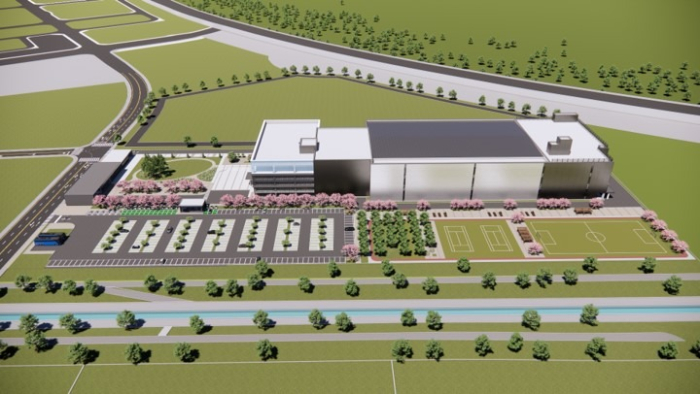Doosan Tesna to invest $160 mn in chip testing plant in Korea
The company will complete the factory in H1 2027; it will focus on testing system on chips, CMOS image sensors
By Jul 04, 2024 (Gmt+09:00)
South Korea’s Rznomics inks $1.3 bn out-licensing deal with Eli Lilly


Korea’s aesthetic medicine enjoys golden era with surge in foreign spending


In China’s waterway city Hangzhou, K-beauty redefines ‘shuiguang'


Kumho Tire shuts Gwangju plant after fire, derailing record sales run


When in S. Korea, it’s a ritual: Foreigners make stops at CU, GS25, 7-Eleven




South Korea’s Doosan Tesna Inc. will build a semiconductor testing factory in the country with an investment of 220.6 billion won ($159.7 million) to meet growing demand for the inspection of new system on chips (SoCs).
Doosan Tesna on Thursday unveiled a plan to construct the plant in Pyeongtaek, Gyeonggi Province, where the world’s top memory chipmaker Samsung Electronics Co. operates the country’s largest semiconductor complex.
The chip-testing unit of Korea’s plant and machinery powerhouse Doosan Group is set to break ground on the 15,870 square meter (170,824 square feet) facility this year, with construction slated to be completed in the first half of 2027. The company plans to expand the factory in the future if needed to meet growing demand.
“We will increase growth opportunities by actively meeting customer demand by introducing new test equipment and expanding the factory,” said a Doosan Tesna official.
TO FOCUS ON SOC, CIS
The planned factory is set to concentrate on testing high-performance SoCs and CMOS image sensors (CISs).
A SoC is an integrated circuit that combines several components such as the central processing unit (CPU), graphics processing unit (GPU) and memory interfaces on a single substrate or microchip. A CIS is a semiconductor that takes images of objects by extracting light, captured by a lens, as electrical signals for each pixel.
Doosan Tesna aims to make the plant a smart factory using central control systems such as auto stackers and autonomous mobile robots, as well as solar power systems.
The company plans to apply vibration control technology, which is eight times stronger than those in ordinary offices. Few outsourced semiconductor assembly and test service providers use such technology.
It will design the facility to maximize the efficiency of staff and vehicle traffic, as well as equipment, while minimizing the inflow of foreign bodies into the room.
Write to Hyeon-woo Oh at ohw@hankyung.com
Jongwoo Cheon edited this article.
-
 Korean chipmakersSystem on chips: Samsung’s new high-stakes foundry business
Korean chipmakersSystem on chips: Samsung’s new high-stakes foundry businessMar 09, 2023 (Gmt+09:00)
2 Min read -
 Corporate strategyPlant, machinery maker Doosan seeks future from chips, robots
Corporate strategyPlant, machinery maker Doosan seeks future from chips, robotsMar 02, 2023 (Gmt+09:00)
4 Min read -
 Korean chipmakersSamsung to spend $74 bn on chip production lines in Korea
Korean chipmakersSamsung to spend $74 bn on chip production lines in KoreaAug 23, 2022 (Gmt+09:00)
2 Min read


